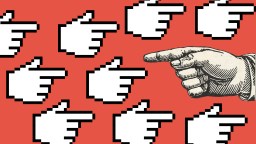ELI PARISER: There was some research recently into asking people to try to figure out which of two websites was more credible. And they asked a group of students and a group of journalists and a group of professional fact checkers. And interestingly, the students and journalists both had a kind of mixed record, and the professional fact checkers did very well. And the difference in their approaches was significant because essentially the students and a lot of the journalists were looking at these websites, scrolling through them, looking at how they appeared, reading the content on them, whereas the fact checkers were looking around the websites. So they were looking at where are these sites referred to on the rest of the web or do other experts in the field have to say about them. Kind of all of the references in, rather than the references on, the web page. knowledge exists in a context, and generally speaking, every once in a while you'll find kind of like the brilliant idea or the brilliant finding that no one on the rest of the internet has discovered. But mostly, smart people on the internet have discovered most smart things on the internet.
And so it's that process of triangulation, where you're looking for other experts who will validate that this source or this idea is credible, is really, like, the critical component of figuring out what to believe. And people think, we all think -- and this is true with human beings and it's true with news or online sources -- we all think we're very good judges of who's lying and who's telling the truth. But we're very susceptible to, you know, is it a beautiful serif font that it's presented in or is it something that looks lower grade; is the person charismatic or are they stuttering. These cues turn out not to have very much to do with whats credible or not. But we're very susceptible to them, and so that's why sort of looking at who else believes that this is credible is a really important part of the process.
Eli Pariser has dedicated his career to figuring out how technology can elevate important topics in the world. He is the co-founder of Upworthy and bestselling author of The Filter[…]
When it comes to sniffing out whether a source is credible or not, even journalists can sometimes take the wrong approach.
▸
2 min
—
with
Related
Autocrats like Xi Jinping and Vladimir Putin fear democracy, yet go to great lengths to present themselves as democratic leaders.
Before Constantine received his history-defining vision, a pagan Sun god paved the way for Jesus Christ’s triumphal entry into the Eternal City.
“This is much deeper than just ‘let’s figure out how we can get both sides to get along.’”
▸
15 min
—
with
Thinking as a group and going along with the loudest voices can feel easy and even natural. But to make real positive change in our world, it’s important to hear all voices and question the perceived majority.
▸
5 min
—
with
Social media isn’t the majority – it’s the vocal fringe.
▸
with






